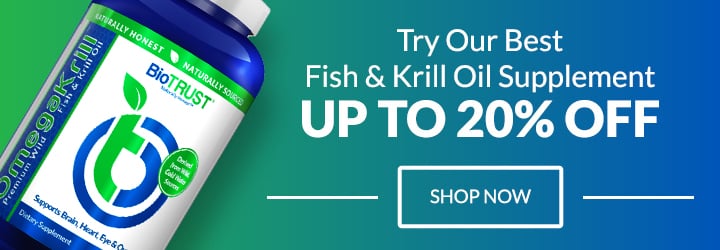The Best Supplements If You Are On a Restrictive Diet

Even though they know what I’m going to tell them, much to my clients’ chagrin, my answer is typically, “It depends.” You see, when it comes to choosing the best supplements for you, we have to consider quite a few factors, including your needs, goals, diet, personal preferences, activity levels, genetic factors, and more.
On top of that, we also have to consider your expectations. Do you realize supplements are intended to complement an overall healthy lifestyle? Or, do you expect a supplement to replace healthy habits and do the work for you? That is, carefully choosing the right supplements is like the figurative cherry on top of the cake. Yes, supplements are important but they’re most useful when you’ve got your foundation set and your proverbial ducks in a row.
What is Restrictive?
“Restrictive” is a very broad term. To some, this might simply mean following any kind of reduced-calorie diet or weight-loss program. To others, this might mean limiting or completely avoiding certain foods (e.g., gluten-free, vegan, elimination diet) or food groups (e.g., ketogenic diet). And to many, “restrictive” might mean cutting back on sugar, reducing portion sizes, or eliminating fast food (e.g., fried foods).
Along those lines, it’s quite possible that the “best” supplements to add to one person’s diet may not be optimal for another. For instance, vegans tend to have very low intakes of vitamin B12, which is found naturally in animal products (e.g., meat, fish, dairy, eggs). On the other hand, someone consuming a high-protein, low-carb diet is likely to get ample B12 yet maybe not enough fiber, which vegans tend to eat in sufficient amounts.
The point is that you should choose supplements carefully, based on your needs, goals, personal preferences, and expectations. Having said that, there is a select group of supplements that can broadly be recommended for anyone looking to improve their health and nutrition, especially folks whose diets involve calorie restriction. Of course, if you leave a comment below, we’ll be happy to help you make the best decisions for you.
Vitamins & Minerals
According to a study published in the Journal of the International Society of Sports Nutrition, the most popular diet plans (including a low-carb diet, Mediterranean-style diet, and the DASH diet) fail to provide recommended levels of vitamins and minerals (i.e., micronutrients). In other words, an individual following any of these popular diet plans has a likelihood of becoming micronutrient deficient, which is “scientifically linked to an increased risk for many dangerous and debilitating health conditions.”1
For this reason alone, a high-quality multivitamin is a foundational supplement for most. And even though choosing the right supplements for you isn’t a popularity contest, a recent survey conducted by the Council for Responsible Nutrition found 75% of supplement users take a multivitamin. Many esteemed authorities would agree with this practice.2
According to researchers from the prestigious Harvard School of Public Health, “a daily multivitamin offers safe, simple micronutrient insurance.” That’s a pretty nifty way of thinking about it: A daily multivitamin is a “nutrition insurance policy.”3 Even the Journal of the American Medical Association—not usually known as a supporter of dietary supplements—agrees that everyone should be taking a multivitamin supplement daily.4
While a multivitamin is a keystone of optimal health and good nutrition, some may find targeted vitamin and mineral supplementation is best for them. Generally speaking, the following are some of the most common nutrient deficiencies:
- Folate
- Vitamin A
- Vitamin C
- Vitamin D
- Vitamin E
- Calcium
- Iodine
- Magnesium
- Potassium
- Zinc
Omega-3 Fatty Acids
Simply put, the omega-3 fatty acids EPA and DHA are nutrition MVPs. They are well-known for supporting:
- Heart health5–7
- Brain health, cognitive function, and mood8–13
- Eye health and vision14–16
- Skin health17,18
- Immune function19
- Metabolic rate, fat burning, insulin sensitivity, and body composition20–22
- A healthy inflammatory response23
- Healthy aging24–26
Much like vitamins and minerals, these healthy fats are essential. That is, the body needs them. However, it cannot produce them on its own. So, you must get them through food, supplementation, or a combination of the two.
The American Heart Association recommends adults consume a minimum of 500 mg/day of EPA and DHA, the two most prominent omega-3s. And often, more is better. The unfortunate reality is that the average person consumes only about a quarter of the recommended amount (around 135 mg/day).27,28 You see, there are very few foods that are highly concentrated in these two all-star fats, with the main dietary source being cold-water fatty fish (e.g., salmon, sardines, anchovies, herring, mackerel) and other seafood (e.g., oysters, mussels).
With that in mind, supplementing with DHA and EPA is a no-brainer. Fish and krill oil supplements are a great choice. If you’re looking for a vegan-friendly option, then an algae-based supplement should do the trick.
Protein Powder
If you’re interested in improving health and nutrition, arguably one of the most impactful and effective strategies is to consume a higher protein diet. Research shows higher protein diets can help enhance:29,30
- Body composition
- Weight loss
- Weight maintenance
- Appetite management
- Glycemic control
- Metabolic rate
- Sleep
- Healthy aging
- Strength
- Athletic performance
- Recovery from exercise
- And more
Protein recommendations can vary significantly based on body composition, size, activity levels, and goals. However, a good starting point is to consume about 0.7 – 1.0 gram of protein per pound of body weight per day. And while it is possible to get enough protein through whole-food sources, a protein powder is a convenient, cost-effective, versatile, and practical solution to ensure you’re getting plenty of high-quality protein daily.
Even more, when combined with weight training—which is a good idea for virtually everyone looking to optimize health and wellness—protein supplements may help enhance strength, performance, and muscle mass.29 What’s more, certain types of supplemental protein (such as whey) may provide additional benefits on appetite, heart health, immune support, and more.
Greens
Packed with vitamins, minerals, and fiber, it’s no secret a diet rich in vegetables and fruits confers many health benefits, including heart health, bone health, carbohydrate metabolism, and protection against many unfavorable health outcomes. Not only that, vegetable and fruit intake can boost fat loss and play a key role in weight management.31–34
Of course, you “know” eating plenty of fruits and vegetables is good for you—it’s the right thing to do. Yet, if you’re like 90% of people, you DON’T eat the minimum recommended number of servings of fruits and veggies each day (at least 2 cups of fruit and 3 cups of veggies).35
That means you’re missing out on important vitamins and minerals (see the section above). But perhaps more importantly, it means you’re missing out on the true super powers of fruits and vegetables: PHYTONUTRIENTS. These phytonutrients, which give fruits and veggies their vibrant colors, are powerful antioxidants that quench free radicals, improve redox status (the capacity to balance pro-oxidants with antioxidants), and help control oxidative stress, which is closely tied to accelerated aging of all cells and tissues in the body.36
For these reasons alone, a powdered greens supplement, which typically contain a variety of phytonutrient-rich fruits, veggies, and herbs, is often foundational for many folks following a restrictive diet and looking to improve health and nutrition.
As an added bonus, greens supplements may help detoxify and alkalize the body and combat dietary acid overload, which can lead to fatigue, confusion, dehydration, weakened immune system, decreased feelings of wellbeing, difficulty with weight management, and more.39–41
Fiber
Simply put, fiber is a nutrition all-star. Dietary fiber promotes a healthy digestive tract, regularity, improves carbohydrate management (e.g., slowed gastric emptying), promotes satiety, reduces caloric intake, and enhances weight loss.42,43
Unfortunately, most people don’t consume nearly enough dietary fiber. According to the Academy of Nutrition and Dietetics, the average American consumes a paltry 15 grams of dietary fiber per day.44 As you might have imagined, researchers have linked low fiber intakes to increased risk for diabetes and obesity. On the other hand, getting enough fiber helps reduce the risk of disease (including cardiovascular disease, diabetes, and certain types of cancer). It also has beneficial effects on weight management and digestive health.45,46
Generally speaking, a good target is 30 – 40 grams of fiber per day. Traditionally, dietary fiber has been categorized as soluble (providing cholesterol benefits) and insoluble (providing laxation benefits). We now know the viscosity and fermentability are also important characteristics of select fibers.
For instance, prebiotics are special fibers that act as food for the beneficial bacteria in the gut, leading to unique health benefits. When gut bacteria ferment prebiotic fibers, the result is the production of short-chain fatty acids (SFCA). These serve as fuel for immune cells, stimulate the release of appetite-curbing hormones, and protect the brain.44,47,48
The Icing on the Cake
When it comes to choosing supplements, you have many options. It can be overwhelming and downright confusing.
At the end of the day, tailoring your supplement arsenal to your needs and goals is optimal. And personalized supplement recommendations are meant to be the figurative icing on the cake. In other words, they’re meant to fill nutrition gaps, satisfy individual goals, ease transitions, and complement a foundation of healthy habits, which are always evolving.
The above list contains a handful of supplements the majority of folks will find to be foundational. That’s not to say you’ll need all of them. You might even find some that are useful now aren’t necessary in the long run. And by no means is this list all-encompassing. There are others (e.g., probiotics) that are more than noteworthy. Of course, if you want help dialing in your supplement choices, drop us a note below, and we’ll help you out!









